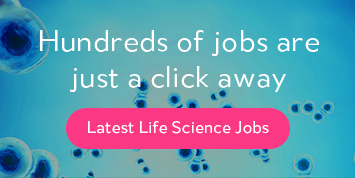

Recent investment into development of treatments for rare diseases has seen increased demand for R&D professionals in that area. But what is behind this shift, and should you consider a career in rare diseases and orphan drugs?
Pharma has seen a shift in recent years from the blockbuster model to a focus on the development of orphan drugs, which are treatments for rare diseases that afflict small patient populations. Scientific advances have led to a growing understanding of the genome, which has given biopharmaceutical researchers new tools to explore rare diseases, which are often more complex than common diseases. Thanks to the Orphan Drug Act, therapies for rare diseases also have several governmental development drivers for pharmaceutical and biopharmaceutical companies, which include tax credits, a waiver of FDA fees, funding grants for clinical trials and a 7-year exclusivity for the marketable product.
As a result, there are more FDA approvals than ever before and the number of submissions, designations and approvals are rising at a record pace. The shift of focus to orphan drugs has led to an increase in jobs at pharmaceutical companies in this field; this trend is set to continue.
Rare diseases are not as rare as you think
Until recently, pharmaceutical research and development has been largely concentrated on conditions that affect the wider population, so many rare conditions have had little or no treatments available for patients. But collectively rare diseases are not so rare. The exact number of conditions is difficult to determine since around five new rare diseases are described in medical literature every week and definitions of a rare disease can vary in different parts of the world. The European Union defines it as a condition that affects fewer than one in 2,000 of the general population; this means that a single condition can affect up to 371,000 people across Europe and still be regarded as 'rare'. Rare Disease UK claim that there are between 6000 and 8000 known rare diseases and around 30 million people across Europe will be affected by a rare disease at some point in their lives. With genetics able to isolate genes, many diseases that are now regarded as common could one day be subdivided into a series of rare diseases.
The majority of known rare disorders are severe and chronic, with many being degenerative and life threatening. Most patients live with no effective treatment options and no hope because the rarity of their disorders mean that they have been overlooked. Patients with rare diseases often suffer from missed, delayed or inaccurate diagnosis because common symptoms can hide an underlying rare disease.
People who work in R&D for rare diseases can have a very rewarding career because they often work very closely with patients and communities of supporters, including parents and campaigners. These communities can be very effective in raising awareness and funding for research as demonstrated the effectiveness of the Ice Bucket Challenge, which went viral and raised over $100 million for the ALS Association. They are also important to pharmaceutical companies in trying to establish international patient registries that help with patient recruitment that is necessary for clinical trials.
Who is developing drugs for rare diseases?
Historically, the development of 70–75% of orphan drugs was mostly in the realm of smaller biotechnology and specialty pharmaceutical companies, and the remaining 25–30% of the orphan drugs were developed by the pharma giants. However, in the past decade, the share of pharma giants in the orphan drug approvals has increased to 40–45% according to recent ophan drug pipeline reports.
Many of the companies that Proclinical recruits for have exciting pipelines of orphan drugs. Top ten pharmaceutical company GlaxoSmithKline has multiple rare disease therapies in various stages of clinical trials, including several in phase III. Others including Eli Lilly, Novartis, Sanofi Genzyme and Shire are also developing treatments for rare conditions.
Alexion, developer of Soliris, is one of the few companies that specialises in the field of ultra-rare diseases and has therapies under development for various conditions that include ultra-rare metabolic diseases; ultra-rare neurological diseases; life-threatening, ultra-rare, genetic metabolic disorders; and life-threatening autoimmune disorders.
Submissions and approvals are at an all time high for orphan drugs and with further scientific development, investment and awareness of conditions generated by campaigns, such as an annual Rare Disease Day, the momentum is set to continue. With so many of these therapies in the pipelines of some of the world's biggest pharmaceutical companies there are increasing opportunities for highly-skilled pharma professionals to help to develop life-changing therapies for conditions with unmet medical need.
If you are interested in working in rare disease jobs in the pharmaceutical industry, Proclinical would love to hear from you. Simply apply to our life sciences job opportunities or upload your CV to our candidate database and one of our specialist recruitment consultants will contact you about relevant opportunities.

.png)





.png)

.png)
.png)

.png)
.png)













